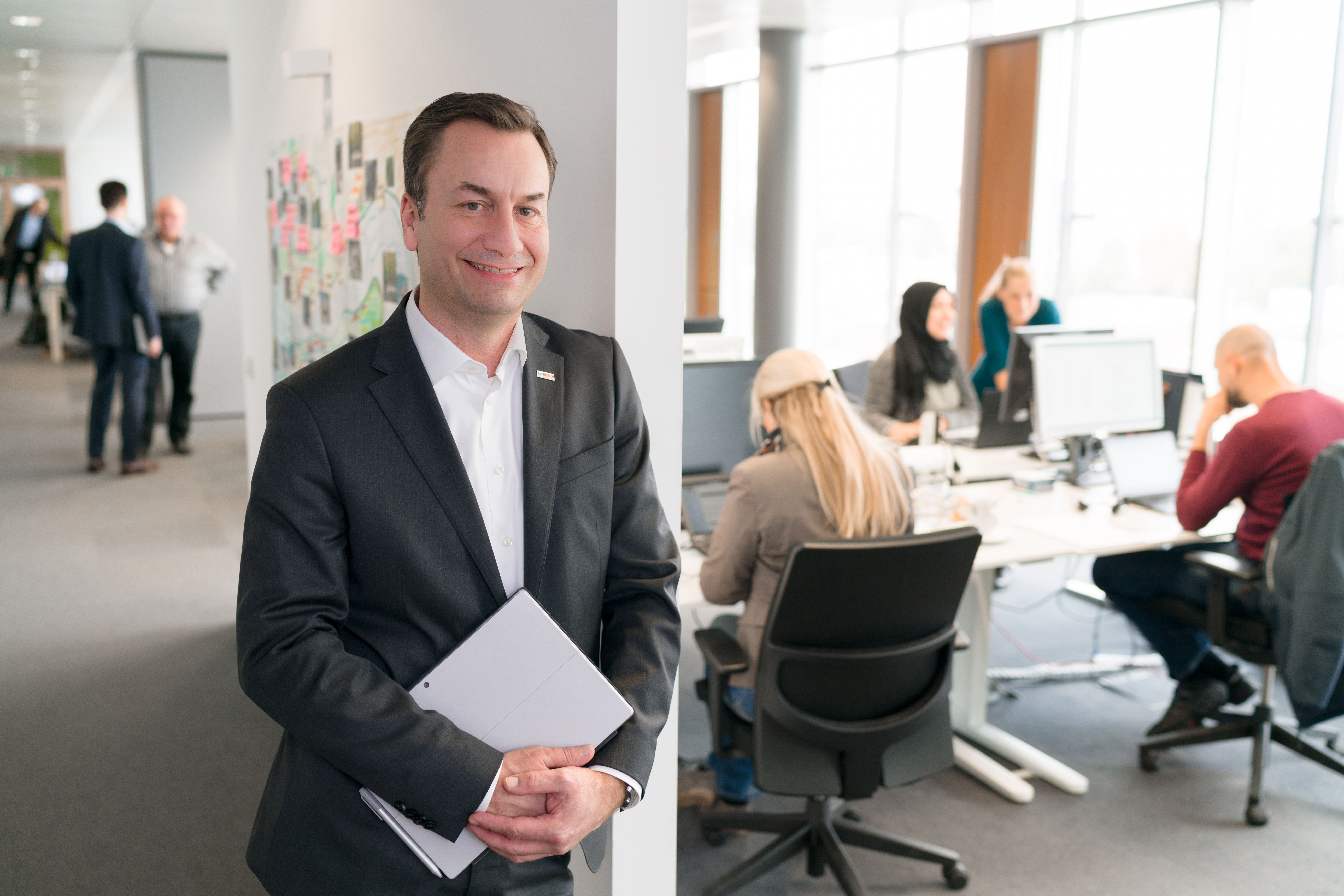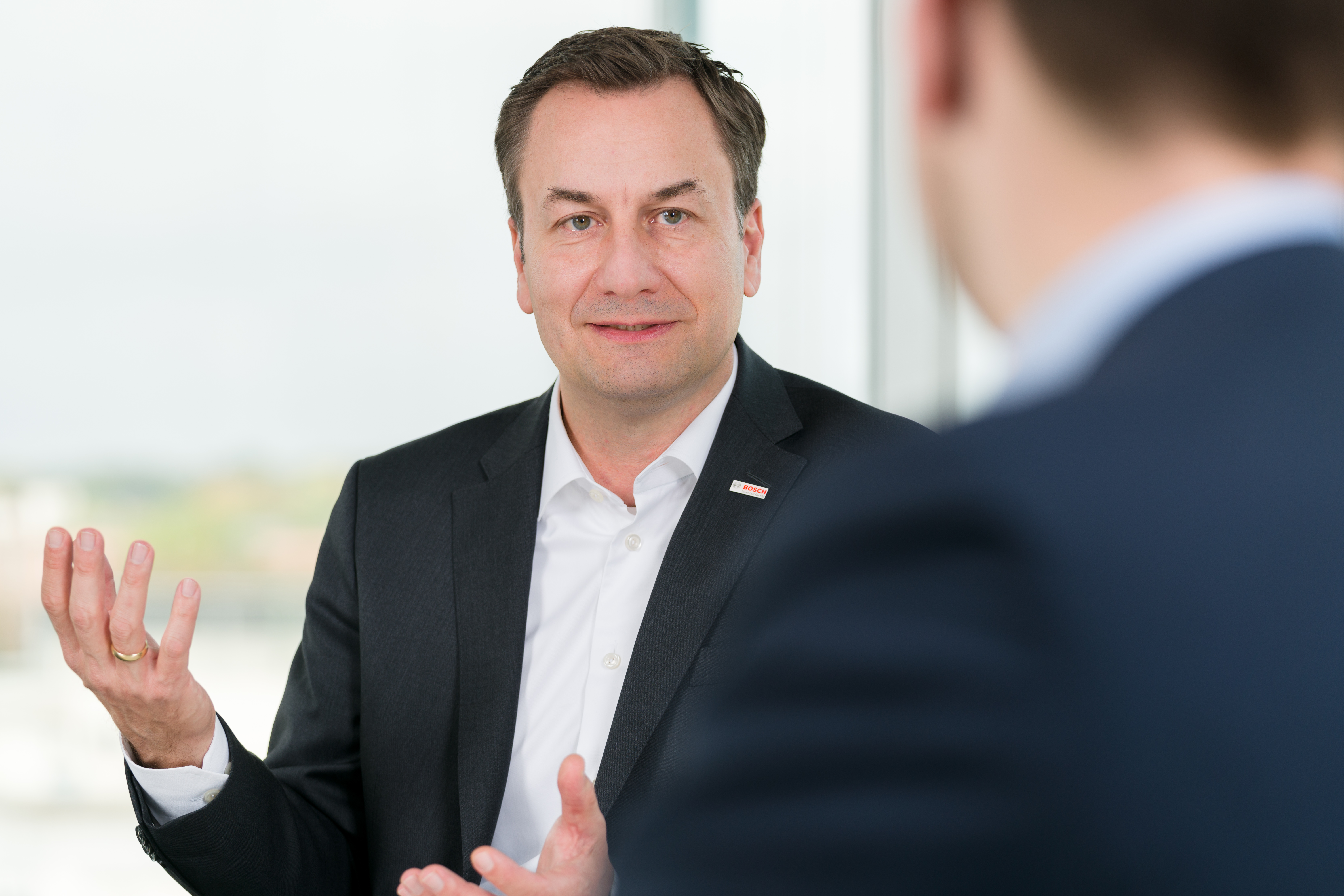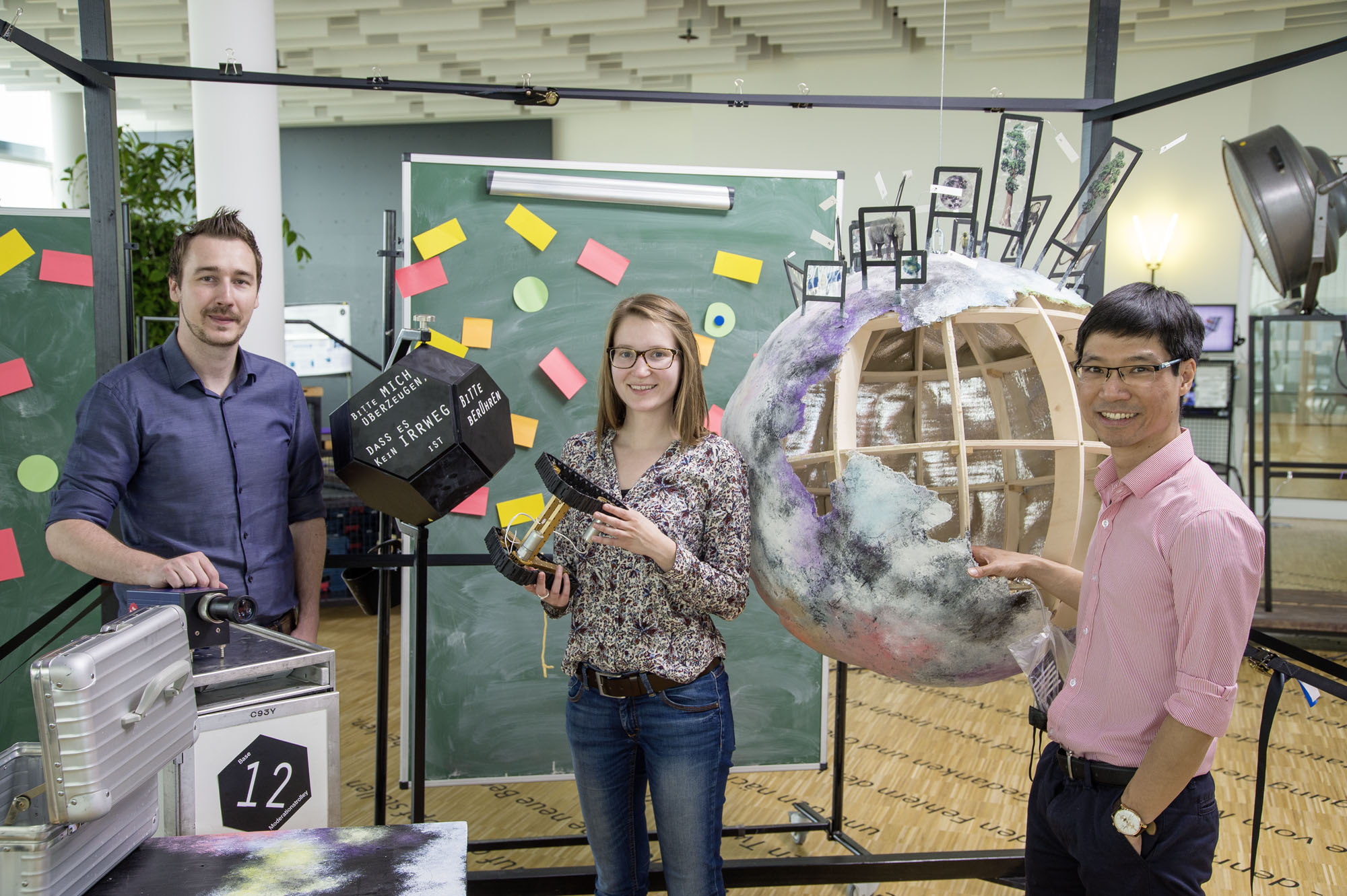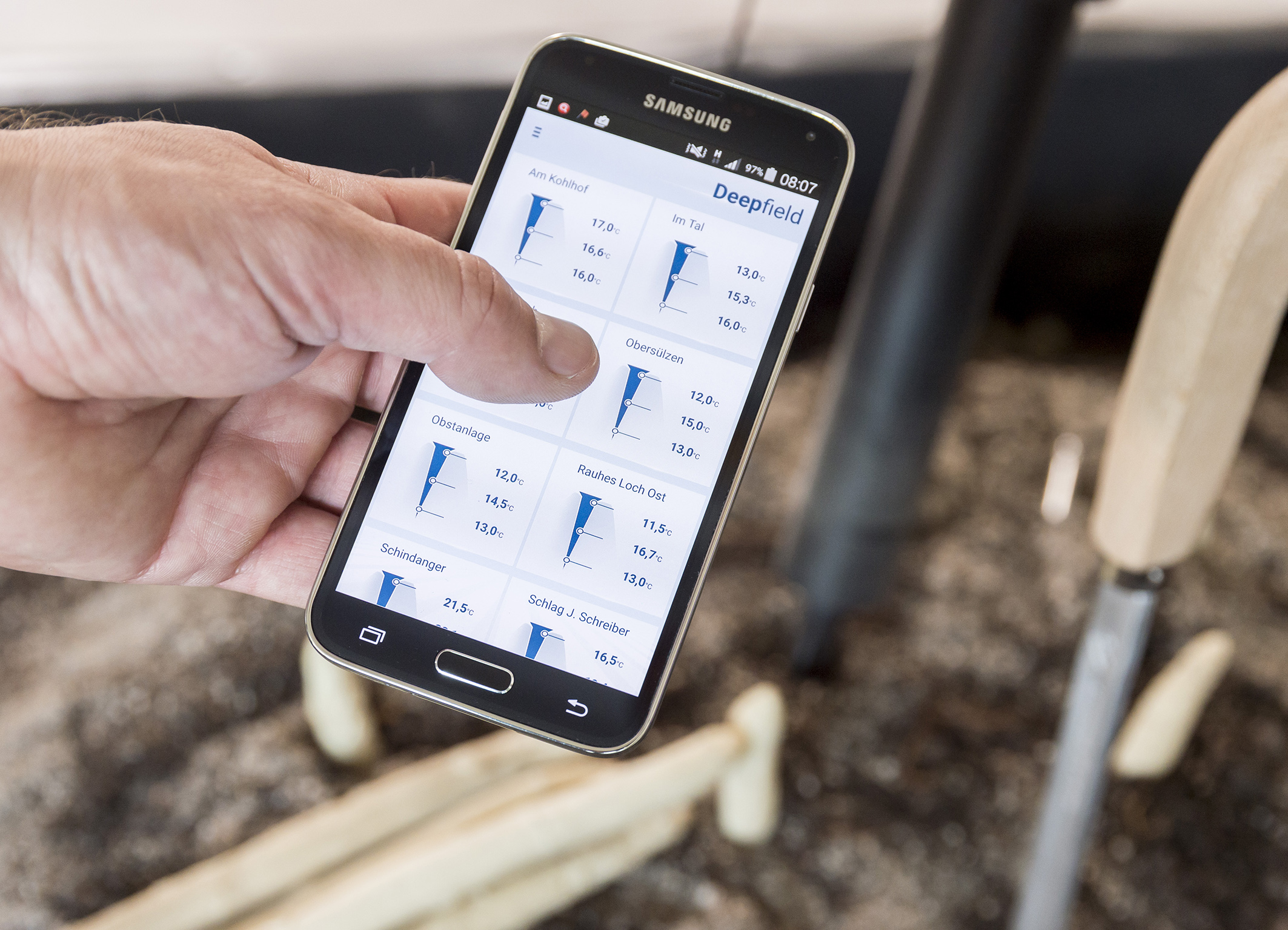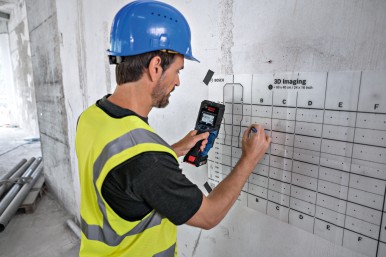Stuttgart – If washing machines and dryers automatically switch themselves on as electricity from the house’s own solar panels becomes available, energy costs can be reduced. If the appliances can in addition be inspected remotely at regular intervals and serviced when needed, the result is significantly lower repair costs. “Services such as remote diagnosis and maintenance only work when products are connected via the internet of things (IoT),” says Dr. Elmar Pritsch, Bosch’s chief information officer. The 48-year-old is responsible for the company’s global IT infrastructure, and a workforce of 7,500. In recent months, the supplier of technology and services has developed and rolled out its new IT@Bosch concept. This novel approach involves more closely linking Bosch’s corporate IT sector with its business sectors. “Information technology is evolving from a cost factor into a core competence. It will make a major contribution to Bosch’s future growth, since it will be part of products and their accompanying services,” Pritsch says. By 2020, Bosch has set itself the goal of making every new electronic product web-enabled, and developing accompanying services.
About Bosch
The Bosch Group is a leading global supplier of technology and services. It employs roughly 418,000 associates worldwide (as of December 31, 2024). The company generated sales of 90.3 billion euros in 2024. Its operations are divided into four business sectors: Mobility, Industrial Technology, Consumer Goods, and Energy and Building Technology. With its business activities, the company aims to use technology to help shape universal trends such as automation, electrification, digitalization, connectivity, and an orientation to sustainability. In this context, Bosch’s broad diversification across regions and industries strengthens its innovativeness and robustness. Bosch uses its proven expertise in sensor technology, software, and services to offer customers cross-domain solutions from a single source. It also applies its expertise in connectivity and artificial intelligence in order to develop and manufacture user-friendly, sustainable products. With technology that is “Invented for life,” Bosch wants to help improve quality of life and conserve natural resources. The Bosch Group comprises Robert Bosch GmbH and its roughly 490 subsidiary and regional companies in over 60 countries. Including sales and service partners, Bosch’s global manufacturing, engineering, and sales network covers nearly every country in the world. Bosch’s innovative strength is key to the company’s further development. At 136 locations across the globe, Bosch employs some 87,000 associates in research and development.
The company was set up in Stuttgart in 1886 by Robert Bosch (1861–1942) as “Workshop for Precision Mechanics and Electrical Engineering.” The special ownership structure of Robert Bosch GmbH guarantees the entrepreneurial freedom of the Bosch Group, making it possible for the company to plan over the long term and to undertake significant upfront investments in the safeguarding of its future. Ninety-four percent of the share capital of Robert Bosch GmbH is held by Robert Bosch Stiftung GmbH, a limited liability company with a charitable purpose. The remaining shares are held by Robert Bosch GmbH and by a company owned by the Bosch family. The majority of voting rights are held by Robert Bosch Industrietreuhand KG. It is entrusted with the task of safeguarding the company’s long-term existence and in particular its financial independence – in line with the mission handed down in the will of the company’s founder, Robert Bosch.
Additional information is available online at www.bosch.com, www.bosch-press.com.

